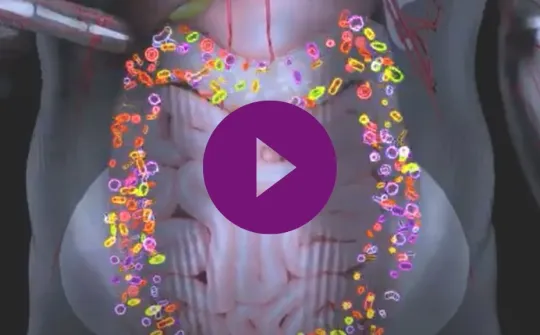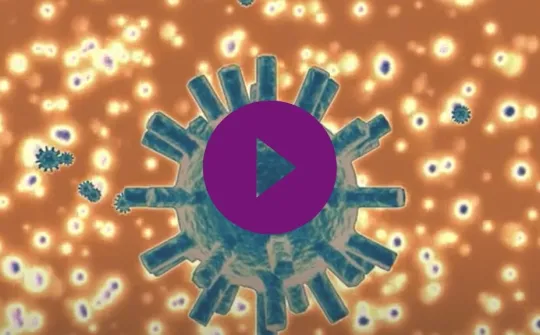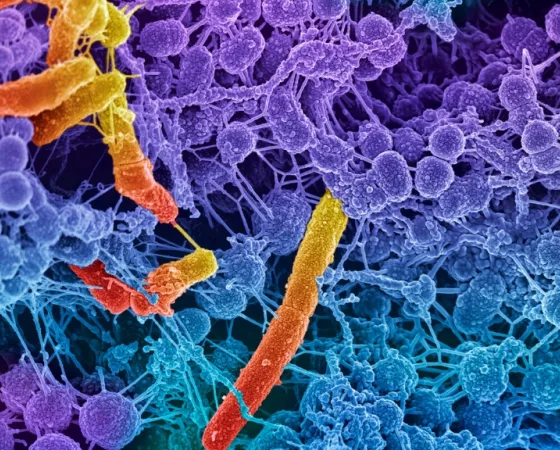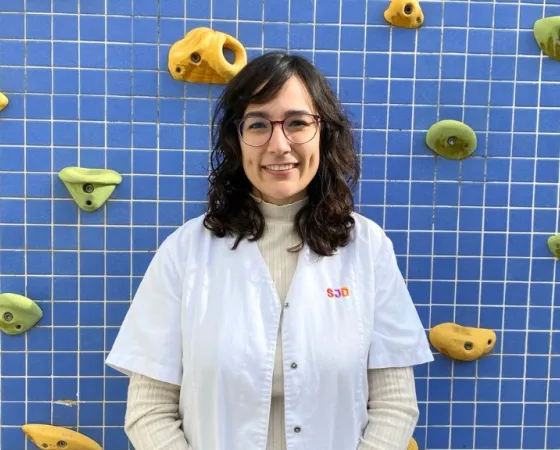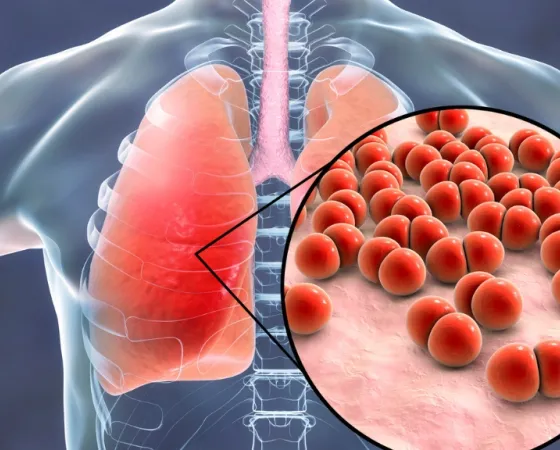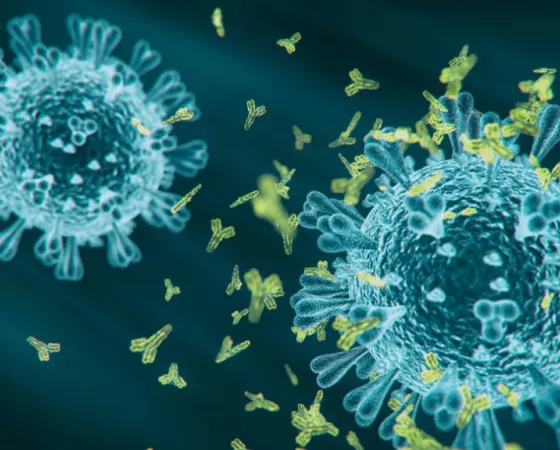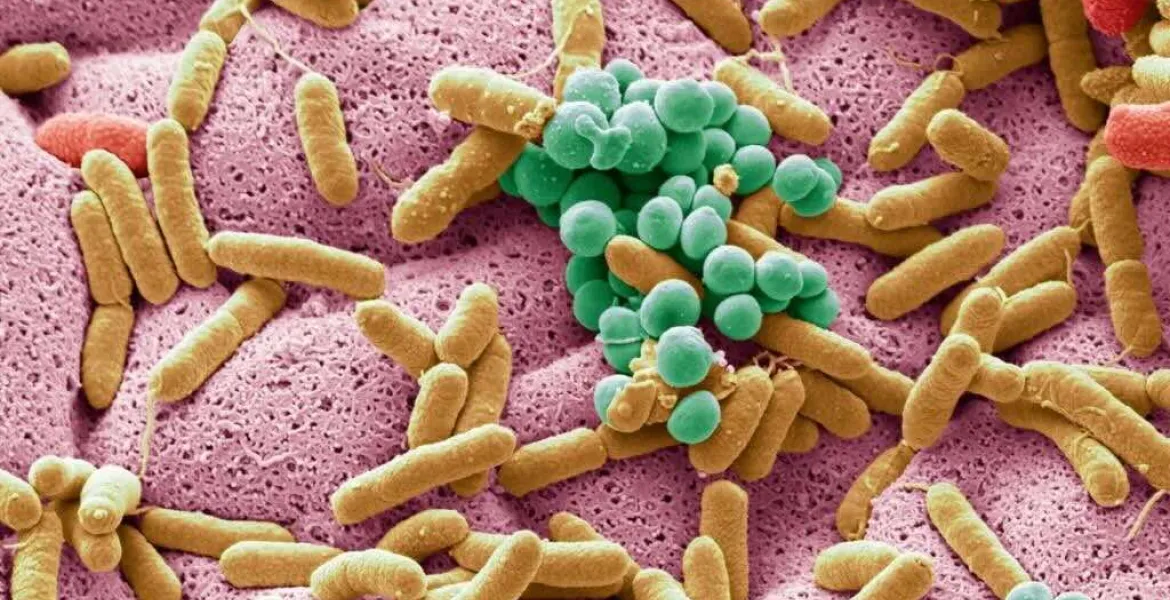
Delve into the world of the human microbiome and discover how it influences health through a selection of research projects conducted at the SJD Barcelona Children's Hospital.
Did you know that there are several trillion microorganisms in our body? This microscopic world makes up the human microbiome and has a direct impact on our health.
Delve into our microscopic world and learn about the research at the SJD Barcelona Children's Hospital that focuses on improving diagnosis for the most common pediatric infectious diseases using Science Agora materials.
The microbiota and its microorganisms
SJD Investiga
At the SJD Barcelona Children's Hospital, we research microbiological and molecular aspects of infectious pediatric diseases. One of our goals is to study the human microbiome and to improve diagnosis for the most common pediatric infectious diseases.
Exploration of the human microbiomeThe influence of the nasopharyngeal microbiota on health statusThe nasopharyngeal microbiota of children at various states of respiratory health has been analysed to gain a better understanding of its relathionship with the development of infections.
More informationSJD InvestigaStudy on the nasopharyngeal microbiota in children according to their respiratory health status
We have investigated the relationship between nasopharyngeal microbiota and respiratory health
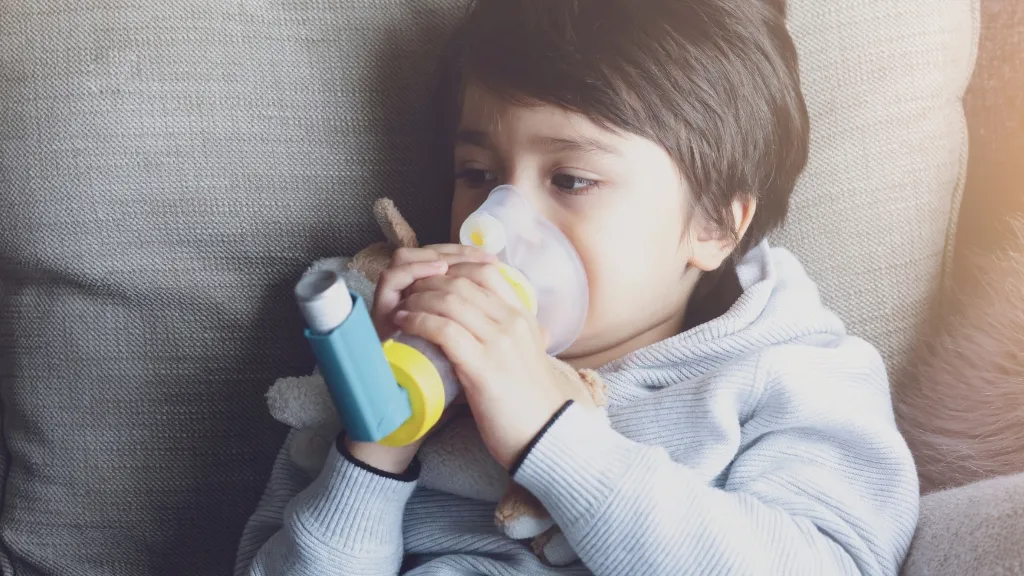
Nasopharyngeal microbiota and respiratory health
Acute respiratory infection, which includes several diseases caused by different microorganisms, is the main cause of antibiotic administration and hospitalisation for children under 5 years of age. The nasopharyngeal microbiota influences the severity of this infection.
At the SJD Barcelona Children's Hospital, we have analysed the nasopharyngeal microbiota of children at various conditions of respiratory health to improve differentiation and diagnosis of different health states.
Effects of antibiotics on the nasopharyngeal microbiotaWe have studied the potential side-effects that exposure to antibiotics for the treatment of invasive pneumococcal disease may have on the nasopharyngeal microbiota.
More informationStudy on the increase of oral bacteria in the nasopharyngeal microbiota of children after antibiotic treatment
We have observed that antibiotics can alter the naspharyngeal microbiota, having a direct impact on health

Antibiotics are an effective treatment against bacterial infections, such as invasive pneumococcal disease. However, there is still little knowledge about their side-effects on the microbiota.
At the SJD Barcelona Children's Hospital we have compared the nasopharyngeal microbiota in children with invasive pneumococcal disease and different degrees of exposure to antibiotics to assess the side-effects this exposure may have on the microbiota.
We have observed that after treatment with antibiotics there is a reduction in Streptococcus pneumoniae, the bacterium that causes invasive pneumococcal disease. Reduction in this bacterium in the nasopharyngeal microbiota is accompanied by a short-term repopulation by oral bacteria associated with hospital-acquired infections.
We have characterised the nasopharyngeal microbiota in infants with confirmed whooping cough symptoms, through massive sequencing, and compared it with that of healthy infants to understand why there are differences in symptoms between patients and improve diagnosis of this disease.
More informationExploration of the nasopharyngeal microbiota composition in infants with whooping cough symptoms
We have characterised the nasopharyngeal microbiota in infants with confirmed whooping cough symptoms and compared it with that of healthy infants.

Whooping cough is an infectious disease of the respiratory tract, caused by the Bordetella pertussis bacterium. It can be fatal, especially in unvaccinated or incompletely vaccinated infants under one year of age. It has very varied symptoms and, sometimes, despite presenting symptoms specific to this disease, there are children for whom a positive result for whooping cough is not obtained in the laboratory. At the SJD Barcelona Children's Hospital We have characterised the nasopharyngeal microbiota in infants with confirmed whooping cough symptoms, through massive sequencing, and compared it with that of healthy infants.
Studying the nasopharyngeal microbiota can help us understand why there are differences in symptoms between patients and improve diagnosis of this disease.
Through the study of the microbiota using massive sequencing, Bordetella was detected in some of the infants who had symptoms of whooping cough but a negative PCR result.
We conducted a study to understand how COVID-19 affects children and to analyse how lockdown affected the nasopharyngeal microbiota.
More informationKids Corona, research on COVID-19
A study to understand how COVID-19 affects children
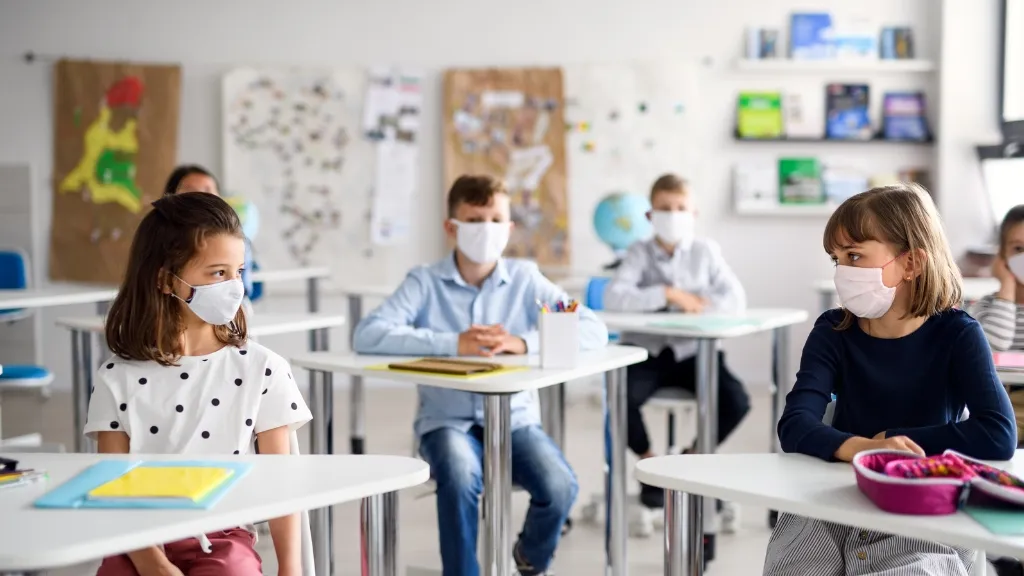
During the COVID-19 pandemic, it was observed that the disease caused by the SARS-CoV-2 virus affected adults more than children. In fact, after detecting numerous asymptomatic cases, several studies determined that in paediatric age the disease was mild.
At the SJD Barcelona Children’s Hospital, we conducted a study during the lockdown to assess whether children exposed to SARS-CoV-2 in the home environment were less susceptible to COVID-19 than adults. We also analysed how lockdown affected the nasopharyngeal microbiota and if there were differences in its composition between those who had COVID-19 and those who did not develop the disease.
It was concluded that children become infected just like adults when exposed to a source of infection. However, the disease manifests itself in a much milder form.
The nasopharyngeal microbiota of children at various states of respiratory health has been analysed to gain a better understanding of its relathionship with the development of infections.
Study on the nasopharyngeal microbiota in children according to their respiratory health status
We have investigated the relationship between nasopharyngeal microbiota and respiratory health

Nasopharyngeal microbiota and respiratory health
Acute respiratory infection, which includes several diseases caused by different microorganisms, is the main cause of antibiotic administration and hospitalisation for children under 5 years of age. The nasopharyngeal microbiota influences the severity of this infection.
At the SJD Barcelona Children's Hospital, we have analysed the nasopharyngeal microbiota of children at various conditions of respiratory health to improve differentiation and diagnosis of different health states.
We have studied the potential side-effects that exposure to antibiotics for the treatment of invasive pneumococcal disease may have on the nasopharyngeal microbiota.
Study on the increase of oral bacteria in the nasopharyngeal microbiota of children after antibiotic treatment
We have observed that antibiotics can alter the naspharyngeal microbiota, having a direct impact on health

Antibiotics are an effective treatment against bacterial infections, such as invasive pneumococcal disease. However, there is still little knowledge about their side-effects on the microbiota.
At the SJD Barcelona Children's Hospital we have compared the nasopharyngeal microbiota in children with invasive pneumococcal disease and different degrees of exposure to antibiotics to assess the side-effects this exposure may have on the microbiota.
We have observed that after treatment with antibiotics there is a reduction in Streptococcus pneumoniae, the bacterium that causes invasive pneumococcal disease. Reduction in this bacterium in the nasopharyngeal microbiota is accompanied by a short-term repopulation by oral bacteria associated with hospital-acquired infections.
We have characterised the nasopharyngeal microbiota in infants with confirmed whooping cough symptoms, through massive sequencing, and compared it with that of healthy infants to understand why there are differences in symptoms between patients and improve diagnosis of this disease.
Exploration of the nasopharyngeal microbiota composition in infants with whooping cough symptoms
We have characterised the nasopharyngeal microbiota in infants with confirmed whooping cough symptoms and compared it with that of healthy infants.

Whooping cough is an infectious disease of the respiratory tract, caused by the Bordetella pertussis bacterium. It can be fatal, especially in unvaccinated or incompletely vaccinated infants under one year of age. It has very varied symptoms and, sometimes, despite presenting symptoms specific to this disease, there are children for whom a positive result for whooping cough is not obtained in the laboratory. At the SJD Barcelona Children's Hospital We have characterised the nasopharyngeal microbiota in infants with confirmed whooping cough symptoms, through massive sequencing, and compared it with that of healthy infants.
Studying the nasopharyngeal microbiota can help us understand why there are differences in symptoms between patients and improve diagnosis of this disease.
Through the study of the microbiota using massive sequencing, Bordetella was detected in some of the infants who had symptoms of whooping cough but a negative PCR result.
We conducted a study to understand how COVID-19 affects children and to analyse how lockdown affected the nasopharyngeal microbiota.
Kids Corona, research on COVID-19
A study to understand how COVID-19 affects children

During the COVID-19 pandemic, it was observed that the disease caused by the SARS-CoV-2 virus affected adults more than children. In fact, after detecting numerous asymptomatic cases, several studies determined that in paediatric age the disease was mild.
At the SJD Barcelona Children’s Hospital, we conducted a study during the lockdown to assess whether children exposed to SARS-CoV-2 in the home environment were less susceptible to COVID-19 than adults. We also analysed how lockdown affected the nasopharyngeal microbiota and if there were differences in its composition between those who had COVID-19 and those who did not develop the disease.
It was concluded that children become infected just like adults when exposed to a source of infection. However, the disease manifests itself in a much milder form.

